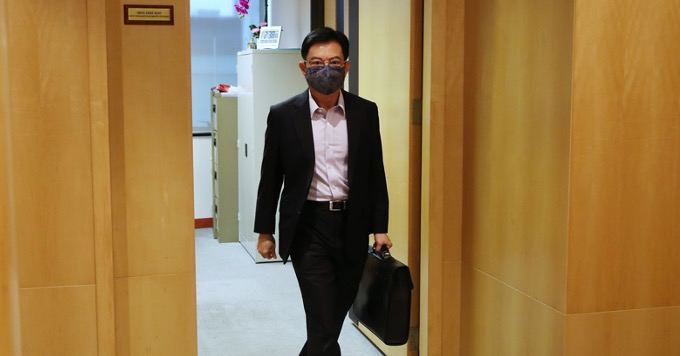2020 was a watershed moment in Singapore's history, as the country experienced its worst recession since independence. The resulting government response, with budgets that funnelled S$92.9 billion in economic support, saw many ground-breaking measures.
Direct government payouts for those who lost their jobs and saw incomes reduced due to the pandemic. Direct government support for companies to continue paying their employees. Transfers for sectors that were hardest-hit, like aviation.
Economic orthodoxy fell by the wayside as the vaunted national reserves were tapped into, precisely for such a rainy-day scenario anticipated by previous generations.
But if 2020 broke new ground, then 2021 is something of a return to form.
1. No big hongbaos, targeted support
There were no wide-ranging hongbaos, as Deputy Prime Minister (DPM) and Finance Minister Heng Swee Keat presaged in his Facebook post the day before.
The pandemic still loomed large, with policies like the Jobs Support Scheme (JSS) and Jobs Growth Incentive to continue for some sectors, and more direct support for taxi drivers and the aviation sector.
But the response to Covid-19 was not the be-all and end-all of the Budget. There were also policies with an eye on the future, such as the Green Plan for sustainability, and adjusting the tax regimen to respond to changing demands of consumers.
After a tumultuous year, the Emerging Stronger Together (EST) Budget resembles a hybrid of the pre-pandemic era and measures to tide Singaporeans through the pandemic, even as vaccines are being rolled out.
2. Covid-19 response
An S$11 billion Covid-19 resilience package will be launched to safeguard public health, support workers and businesses, and provide targeted support to the hardest-hit sectors.
S$4.8 billion will be dedicated to public health and re-opening measures.
S$700 million will be committed to extending the JSS, with an extension of six months for hardest-hit sectors like aviation and tourism.
The aviation, land transport and arts, culture and sports sectors will receive targeted support and cost relief of about S$1.05 billion.
3. Workers & Businesses Emerging Stronger
Heng committed S$24 billion over the next three years to help firms and workers to revamp themselves in light of changes in the global economy.
The government aims to grow a vibrant business community, catalyse a wide range of capital and create opportunities and redesign jobs.
An additional S$5.4 billion will be channelled to a second tranche of the SGUnited Jobs and Skills Package, including an extension of the Jobs Growth Incentive.
4. Strengthening the Social Compact
Heng introduced a S$900 million Household Support Package to support families, with lower-to-middle-income families receiving more.
Households that qualify will get an additional S$200 special payment, an additional 50 per cent of their U-Save voucher, Service and Conservancy Charges rebates of 1.5 to 3.5 months.
Children below 21 in 2021 will receive an additional one-off S$200 in their Child Development Account/Edusave account/Post-Secondary Education Account.
Also, all Singaporean households will get S$100 in CDC vouchers to support heartland shops and hawker centres.
Vulnerable groups such as lower-wage workers and lower-income families will be supported, with ComLink expanded over the next two years to cover 14,000 families with children in rental housing.
5. Green Plan 2030
The EST Budget also announced several measures under the Singapore Green Plan 2030. S$60 million will be given to a new Agri-Food Cluster Transformation Fund to support technology adoption.
The car-lite society will be boosted with various measures to encourage the adoption of electric vehicles, such as S$30 million over five years for related-initiatives, and 60,000 charging points at public carparks and private premises by 2030.
The government will also issue green bonds on select public infrastructure projects, having identified S$19 billion public sector green projects.
Heng also announced an immediate hike in petrol duty rates of up to 15 cents per litre.
6. Fiscal strategy - GST will be raised sooner than later
The Goods and Services Tax (GST) will not be raised in 2021, but will come "sooner rather than later" depending on the economic conditions, and no later than 2025.
For Financial Year 2021 (FY2021), the government expects an overall budget deficit of S$11 billion or 2.2 per cent of GDP. This is a drop of the budget deficit of S$64.9 billion in FY2020, but remains an expansionary position.
This will be the second consecutive Financial Year where the past reserves will be drawn on, a necessary move due to the exceptional circumstances.
Top image from Heng Swee Keat's Facebook page.
If you like what you read, follow us on Facebook, Instagram, Twitter and Telegram to get the latest updates.
